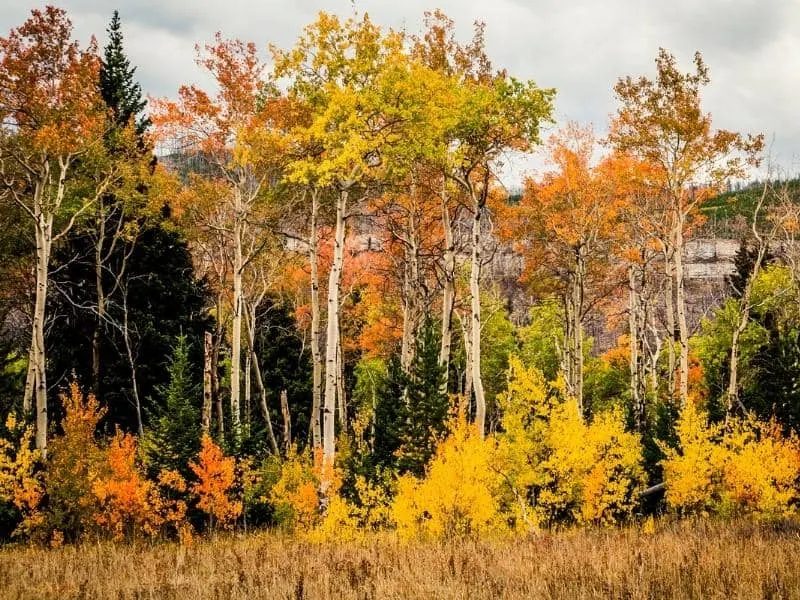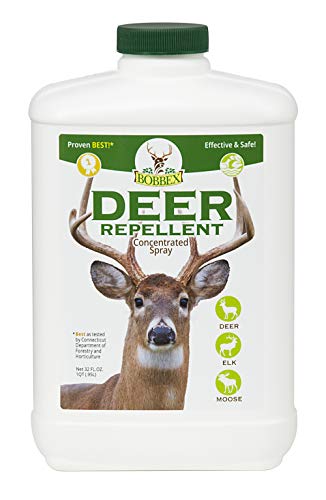Many of our valued possessions in our yards or gardens are our plants. Gardening is a popular hobby among people across the world and people have been growing their interest into gardening recently.
However, these plants and trees are in constant threat of herbivores such as deers. Aspen trees are one such tree that is eaten by deers as well – so this article will discuss this matter in detail.
Deer eat aspen
There are many animals that eat aspen groves throughout the year and deers are one of them. Deers consume almost all parts of a quaking aspen ranging from bark, leaves, saplings to buds and twigs as well. Aspen trees are highly nutritious and therefore are loved by deers.
Table of Contents

Quaking aspens are white barked trees that grow in dense stands that consist of flat leaves attached to their branches through long stalks called petioles.
The tree is called quaking aspen because their leaves tremble in light winds. These trees grow all year round – making them an easy choice of food for herbivores.
All parts of the quaking aspen are loved by deers since they have high nutritious values and are a great source of food in the late summer since there aren’t any nutritious plants sprouting around that time.
And if the area doesn’t have much human intervention or predators roaming around – then the deer population will increase and cause them to heavily rely on and eat aspen plants without any obstruction.
Besides eating, deers can also seriously damage the aspen trees in many ways such as by eating the tips of the young suckering trees sprouting from the tree’s roots or by wounding the bark by chipping it away.
Normally, these aspen trees get to recover and regenerate their wounded parts all by themselves, but if there is active deer and other herbivorous animal activity then it would result in an overgrazing or aspen stands, damaged barks and less leaves causing the amount of new aspen trees to decline.
Animals such as deers and elk have antlers which they use to rub the bark to damage it and then eat from it – which, if overdone, would result in permanent damage to the tree.
Do deer like aspen trees?
Deers do like to eat aspen trees because they are accessible during all seasons and they are nutritious as well. They eat the trees by stripping away the bark of the trees specially during the winter using their antlers to scrape the tree.
During other seasons, they eat the leaves of aspen trees as well as aspen saplings.
Since deers like aspen trees, a large population of deers causes huge amounts of these trees to be damaged. More than 50 percent of the trees end up being short-lived due to the damage taken from deers.
If the deers has damaged the tree bark substantially that it has lost significant width – the tree is not likely to recover. However, if the diameter of the tree is somewhat close to its original size, then the tree can recover in due time.
Do deer eat aspen saplings?
Deers eat all parts of an aspen tree due to being highly nutritious and being an abundant source of food. Not only that, they also love eating them by scraping off the bark during winter and eating off the leaves during other seasons.
If there aren’t any predators to keep the number of deers in check or human interruption to disrupt them – then the deers will boom in population and keep eating away all the aspen plants in the area.
This becomes problematic since deers also eat aspen saplings, and if they do that in large numbers – then the number of new aspen trees growing starts declining rapidly.
Not only that, the older trees end up being short-lived and do not survive due to the damage they endure from deers scraping their bark.
3 reasons why deer do eat aspen
Below listen are some of the core reasons why deers eat aspen:
Nutritional values:
Deers select and eat the plants that provide them with an ample amount of nutrients that will provide them with energy to escape predators and roam around.
Aspen trees are a popular choice for being a deer’s food because they provide ample amounts of necessary nutrients to the deers.
If aspen did not meet the sufficient nutritional values, the deers would not spend the energy to scrape off the bark since they would have an overall energy loss.
Availability:
The abundance of aspen also plays a vital role in why deers eat them. Since deers eat aspen and they are available throughout the year unlike many seasonal plants – they make for a good and stable source of food.
During the summer, the deers can eat new aspen sprouts and seedlings, during winter they eat the barks and during other seasons – they feed on the leaves.
The aspen trees have something to provide the deers to eat whatever the season, which makes the deer eat them.
Edibility:
Another crucial factor as to why deers eat aspen is the overall edibility of the aspen trees. Almost every part of an aspen tree can be eaten by a deer – starting from the seedlings, sapling, leaves to even the barks and branches of the tree.
This means that the deers always have something to eat from the aspen tree regardless of what state the tree is in.
Do deer eat these parts of aspen?
We know that deers eat aspen, but the question may arise about which parts of the aspen do the deer eat. To answer this question, we need to take a closer look at the aspen tree cycle.
During the summer, right after the end of spring – aspen seedlings start to grow and the area is filled with aspen sapling as well. Towards fall, the trees are filled with leaves and during winter – the bark of the trees are left standing.
Aspen trees:
During summer, the deers feed on the aspen trees, seedlings and saplings since they are tender and easier to eat than older trees.
Aspen leaves:
When fall arrives, the deers feed on aspen leaves since they have fully grown since summer and are in great abundance.
Aspen bark:
In winter, the trees are left with the bark as the leaves have withered off, and so the deers scrape off the tree barks with their antlers.
Are aspen trees deer resistant?
Almost all plants are susceptible to damage from large animals, therefore it would be wrong to assume a tree to be deer resistant since the antlers of the deer are powerful enough to mow down trees.
However, there are certain plants that the deers do not like to interact with such as strong smelling trees or with prickly textures. They also avoid trees that have a milky sap that are not suited for their digestion.
However, aspen trees do not fall in any of the above-mentioned criteria and thus are not successful at repelling deer. And since deers have strong antlers, the aspen trees cannot withstand the sheer force of them no matter how strong or old the tree is.
How do you keep deer from eating aspen trees?
There are a few successful repulsion strategies to keep deer from eating aspen trees and those reasons are described in the listicle below:
Protecting the trees with fences and guards:
You can surround the area containing your aspen trees with woven-wire fencing upto a minimum height of 6 feet up and angled about 30 degrees. The angled fences are there to ensure that deers cannot jump over the fence.
While that minimizes deer entry, you can protect your trees by wrapping the trunks with chicken wire or mesh plastic netting to prevent the deer from damaging the tree.

Using repellents to discourage deer activity:
If you do not wish to compromise the beauty of your backyard with fences, you can take advantage of the deer’s sense of smell or taste to keep them away.
Treating your trees with contact repellent would not repel deers from entering the area but will not allow them to eat the aspen.
But a more effective repellent is the area repellent that keeps off deers from the area by emitting an odor that the deers dislike.

Final Thoughts
Deers are among the several animals in the wild that consume aspen groves all year long. Deer eat practically all of the components of a quaking aspen, including the bark, leaves, saplings, buds, and twigs. Deer adore aspen trees because they are incredibly nourishing.
